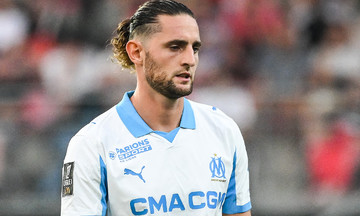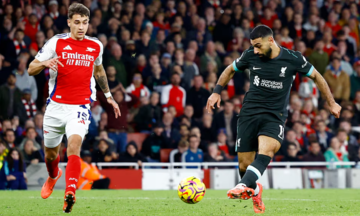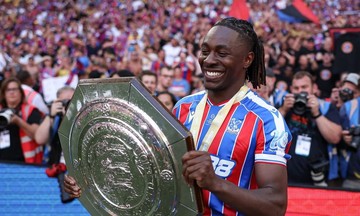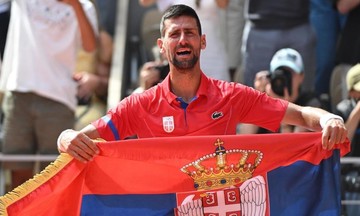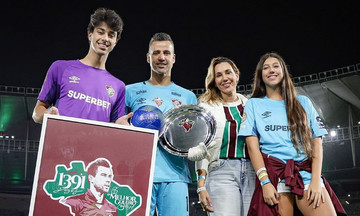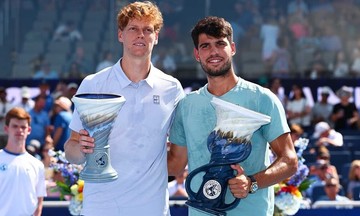The media has become accustomed to the formulaic interview responses of stars before major tournaments. Most are polite, generic, and don't reveal too much about any specific detail that the press wants to delve into. For example, the phrases "I've prepared thoroughly," or "I'll try my best."
So, when the world's number one golfer, Scheffler, questioned the true meaning of competing at the press conference before The Open, it's understandable why those statements became the focus. The 29-year-old star spoke about the importance of faith and family, and how the sport he pursues is not the ultimate goal in his life. Scheffler affirmed he would quit golf if, one day, it affected his life and relationships with his wife and children.
"You reach the number one spot in the world, but... what's the real meaning?" Scheffler questioned himself during a five-minute press conference in mid-July. He talked about the fleeting joy of winning. Scheffler didn't deny the feeling of happiness when winning major events, but asserted "it's not the strongest emotion deep in my heart."
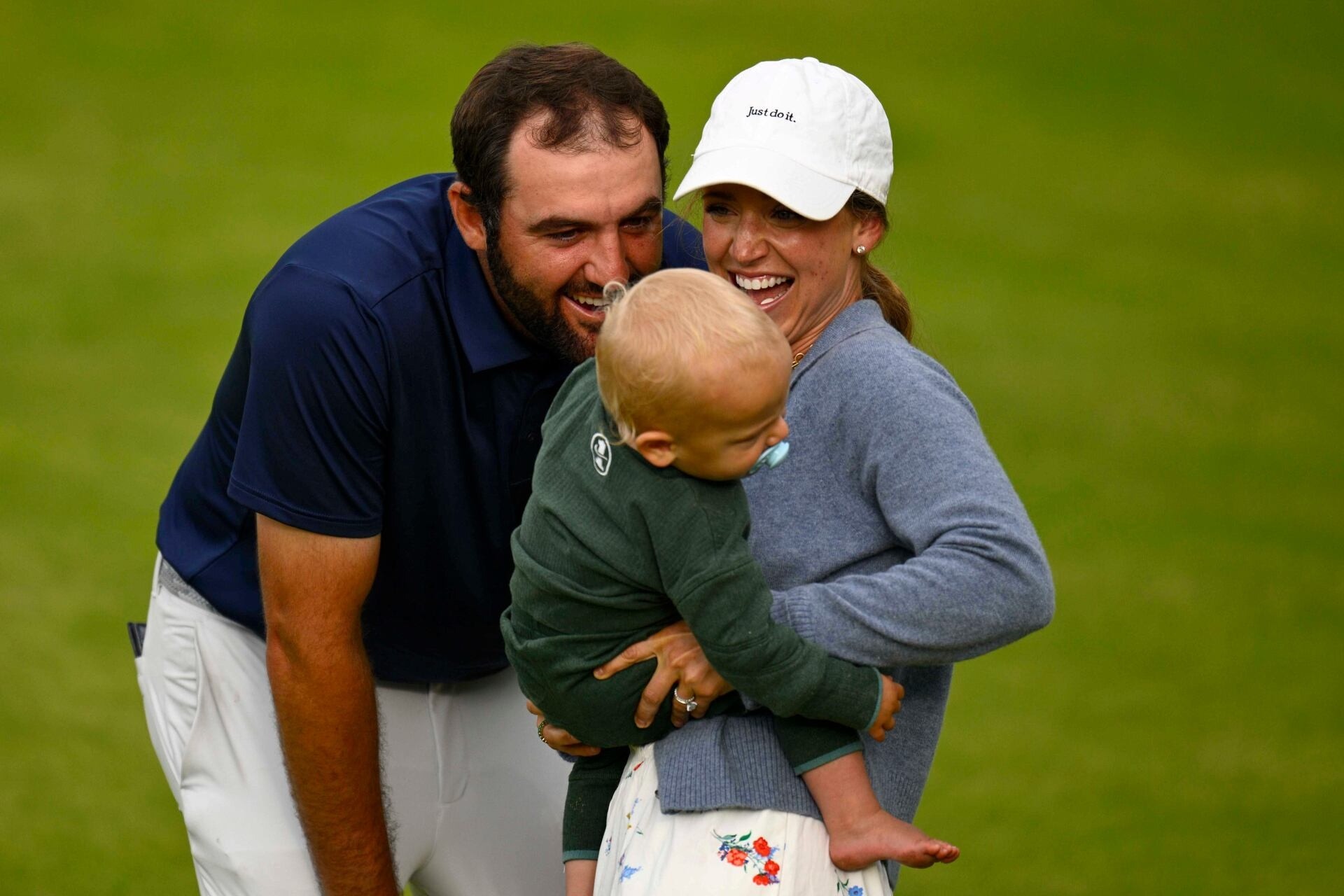 |
Scheffler (left) celebrates with his wife Meredith and son Bennett, after winning The Open at Royal Portrush, Antrim, Northern Ireland on 20/7. Photo: Reuters |
Scheffler (left) celebrates with his wife Meredith and son Bennett, after winning The Open at Royal Portrush, Antrim, Northern Ireland on 20/7. Photo: Reuters
Five days later, Scheffler won another tournament, his fourth major title in the past three years. At the post-tournament press conference, Scheffler was asked again about his views expressed before The Open: "I've worked my whole life to become a good golfer and make a living from it. Playing golf is one of the greatest joys of my life. But success doesn't satisfy my deepest desires."
Instead of expressing overwhelming happiness or talking about determination, about wanting to continue winning, striving tirelessly, and how winning is everything, Scheffler displayed unusual calmness. This mindset is rare for an athlete considered among the best in the world today.
While the timing of his statement was unexpected – at one of the most prestigious sporting events and at the peak of his career – Scheffler isn't the only athlete still diligently searching for the answer to the question: what is the true meaning of life?
Tyson Fury once felt "a hole in his heart" despite having just realized his childhood dream of ending Wladimir Klitschko's nine-year reign in heavyweight boxing. Similarly, Michael Phelps, the most successful Olympian of all time with 23 gold medals, shared last year about suffering from depression after each Olympic Games, starting in 2004 when he won six events in Athens.
Of course, these are exceptional cases, but experiencing emptiness, even decline, is not uncommon for professional athletes, even at the peak of their performance. According to psychotherapist Gary Bloom, there is a psychological phenomenon related to depression that occurs when an athlete achieves a goal earlier than expected.
"How to continue motivating yourself?" Bloom said. "It really depends on personal motivation stemming from the ego. In other words, they consider sporting achievements as the highest measure of value. Instead of demonstrating their true character, many athletes want to define themselves by what they do, even if it's something they're not comfortable with."
Scheffler is a prime example of the opposite of this athlete model. Bloom believes that the American golfer has stepped outside the boundaries of sport by not considering victory as the highest measure for evaluating a person. This is unusual for a sports star under 30.
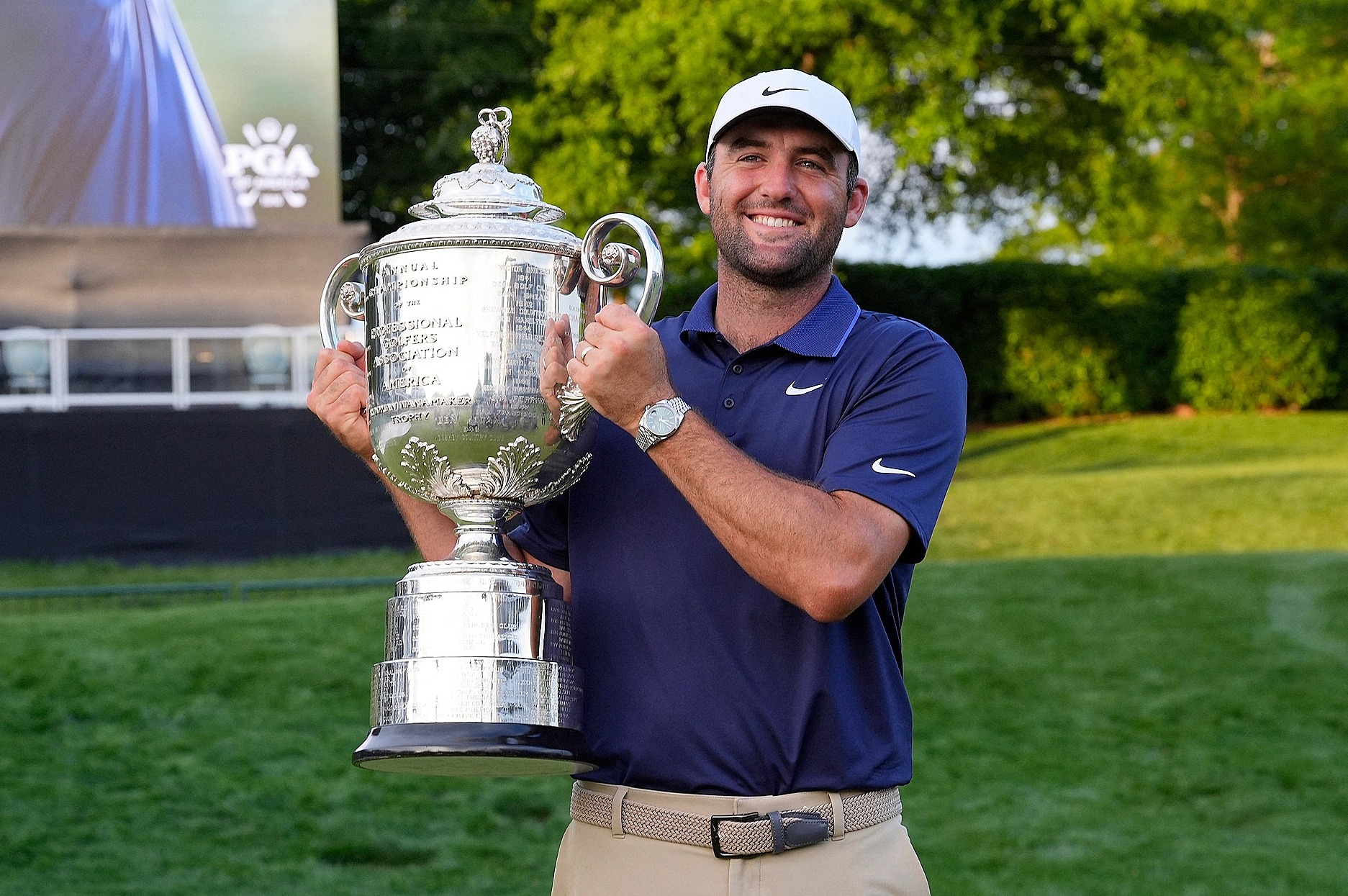 |
Scheffler lifts the trophy after winning The Open at Royal Portrush, Antrim, Northern Ireland on 20/7. Photo: Reuters |
Scheffler lifts the trophy after winning The Open at Royal Portrush, Antrim, Northern Ireland on 20/7. Photo: Reuters
So what motivates Scheffler? It's faith. Scheffler is a devout Christian. He wasn't afraid to express this during the ceremony wearing the legendary Green Jacket when he won The Masters 2022: "The golf scorecard doesn't define me. All I try to do is honor God, and that's why I'm here."
Psychologist Jamil Qureshi emphasizes that happiness is when people immerse themselves in something greater than themselves. He distinguishes between purpose and goals. A golfer who wants to win three events in a year, or shoot around 60 strokes over four days, might think that's their purpose when participating in a tournament, but that's actually a goal. Purpose is something that must be pursued every day.
"I enjoy giving my all. I like competing. I love practicing every day. I enjoy living my dream," Scheffler said. "But at the end of the day, sometimes I still don't understand the true meaning of everything I do."
Scheffler's approach helps him relieve the pressure of achievement, not worrying about the results when competing. Conversely, some athletes only shine under pressure. For Scheffler, he is still achieving glory and is considered the best since Tiger Woods. And the worldviews of both have commonalities.
"Tiger might not hit the fairway once in the last three rounds, but he still wins. The interesting thing is that he's not necessarily excited about the result, but about how he expresses himself through his shots," golfer Paul McGinley commented about Woods during a 2005 match. "Tiger is happy with how he reacts and handles mistakes. He's strong, resilient, and dedicated. They achieve success because they understand themselves and their game."
Scheffler shows that there's more than one path to success, even as he continues his own journey to find the true meaning of life.
Vy Anh



